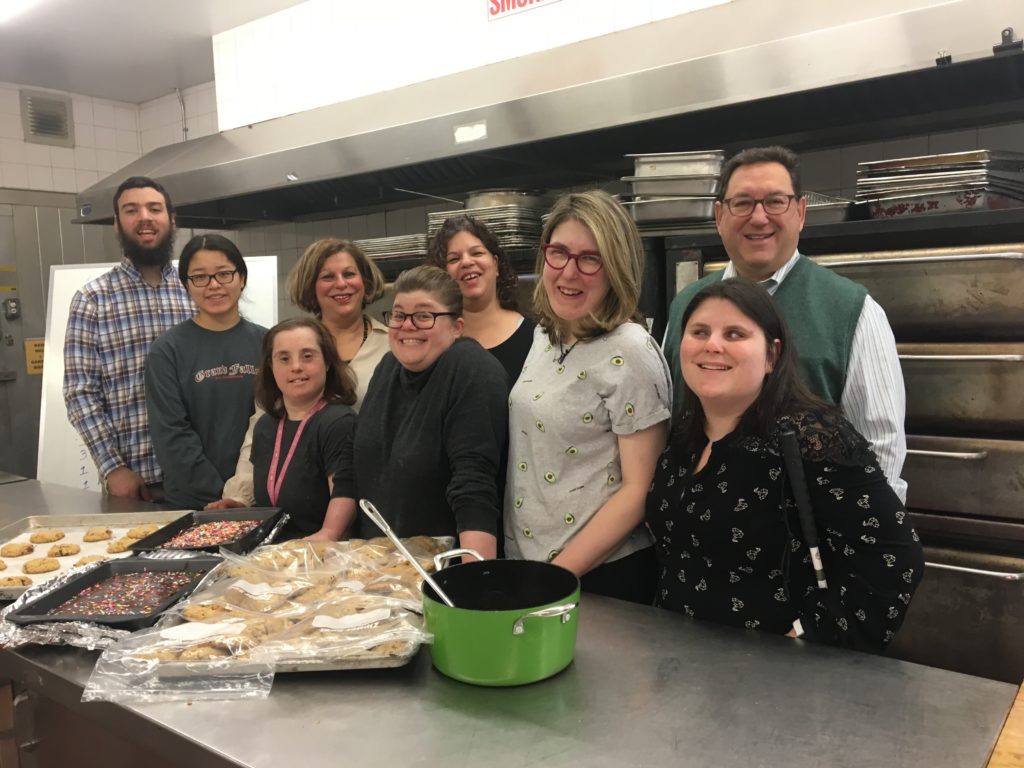A grassroots group of Jewish parents of young adults with special needs has achieved a milestone that it hopes will allow it to significantly improve the lives of what has been an overlooked population in Montreal.
The group has established the Alink Foundation as a not-for-profit organization, which co-founder Harriet Sugar Miller said will give it more clout to advocate for young adults with “neurodiverse challenges” (the organization’s preferred term).
“Neurodiversity is the new language to encompass everybody whose brains work differently,” she explained. “You could call it ‘cognitive’ or ‘brain-based’ challenges instead.
“It includes people with intellectual or developmental disabilities – people use those terms interchangeably – learning disabilities, autism spectrum disorders, people whose brains have been damaged perhaps due to seizures or stroke and people with mental health challenges, which is a common condition in people who have another of the cognitive problems I’ve mentioned.”
The group began informally more than three years ago with a handful of families as Club Alink, which will continue as the foundation’s social group. The primary goal was finding support for the creation of social and recreational activities for their children aged 18 to 35 years.
When Sugar Miller’s now 24-year-old daughter turned 21, she was suddenly too old for school or activities for children and teens – where the focus tends to be.
“What would she do all day, all weekend? How would she make and keep a friend? Who would help us navigate the limited landscape of resources?” asked Sugar Miller, who soon realized she was not alone. Today, Alink has 45 families enrolled in the program.
Sugar Miller is thrilled with the response from the wider community. Federation CJA, in particular, has been especially supportive, both financially and in raising awareness of the issue.
The Alink Foundation is now applying for charitable status, which will help it raise funds.
Alink’s anchor program is a Sunday cooking club at the Adath synagogue in Hampstead, Que., that’s funded in large part by the Federation. It has just seven participants, but serves as an example of the kind of innovative programming the foundation is encouraging.

The congregation and its rabbi, Michael Whitman, have been especially active in promoting accessibility, Sugar Miller noted, and provide space for Alink’s meetings.
“Inclusion” is gaining currency, as witnessed by the unprecedented number of events in Montreal this month celebrating Jewish Disability Awareness, Acceptance and Inclusion Month (JDAIM).
Sugar Miller is gratified that attitudes are changing. To Alink, inclusion “means that our adult children live, work and play along with – not separate and apart from – the rest of the community. We are grateful to so many people who are embracing this new model.”
The Alink Foundation aims to be a “hub” for building partnerships with organizations, professionals and business leaders. It is also seeking volunteers to help out.
As a recognized non-profit, Alink is turning its attention to the bigger issues of employment and housing.
Sugar Miller said the group hopes to persuade more employers – both in the private and non-profit sectors – to hire mentally challenged young adults, even if only for a few hours a week.
READ: CHABAD-LED DISABILITY THINK TANK RECEIVES FEDERAL GRANT
She cited Sam Benamron, who owns a network of physiotherapy clinics, as someone who’s worthy of emulation. He recently hired three young adults with special needs and has started a social media campaign to “spread the message of inclusion in the workplace.”
Alink also hopes to help young people establish their own enterprises. The cooking club at the Adath, for example, which has enjoyed success preparing food for the synagogue’s Kiddush each week, is thinking of developing into a small catering business serving a wider clientele.
Many young adults could live semi-autonomously, Sugar Miller said, but supported housing is scarce and Alink is looking for alternatives to government-run group homes, which have long wait lists.
“My dream is that one day, groups of our young adults who are sufficiently independent will be living in regular apartment building(s) – those that house everyone in the community – with full- time support staff overseeing the groups and with community kitchens in which our kids, trained to cook, will provide meals for all residents,” she said.
“It’s all about building alliances and collaboration. We can’t do this alone.”
This month, Alink has been conducting its “JDAIM, je t’aime” campaign, sending out heartfelt thanks to “the many heroes who have jumped on board the inclusion train.”
For more information, visit facebook.com/clubalink, or email [email protected].






